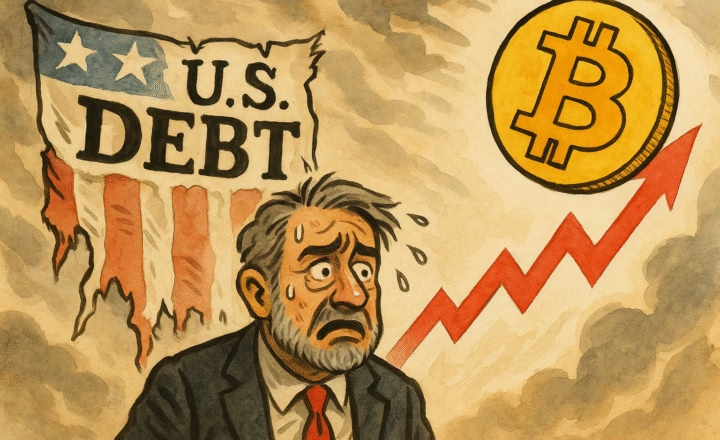Michael Saylor, founder of MicroStrategy and a prominent Bitcoin advocate, has urged the U.S. government to hold 20% of Bitcoin’s circulating supply as a strategic reserve. This bold proposal has sparked multifaceted discussions on national debt reduction, economic impact, and competition for digital currency dominance among global powers.
Saylor’s Argument (Proposal for 20% Bitcoin Reserve)
In February 2025, during the Conservative Political Action Conference (CPAC), Saylor asserted that the U.S. must rapidly establish a “Strategic Bitcoin Reserve” by accumulating 20% of Bitcoin’s network supply. He emphasized, “Only one nation can acquire 20% of Bitcoin, and that nation should be the United States,” underlining the necessity for the U.S. to lead in the digital asset sector.
Key Data (BTC Volume, National Debt, and Economic Impact)
- 20% of Bitcoin’s circulating supply equates to approximately 4 million BTC, requiring around $392 billion at current market prices. This is significantly higher than the estimated value of the U.S. Strategic Petroleum Reserve, valued at approximately $29 billion.
- Saylor argues that if the U.S. holds between 4-6 million BTC, it could effectively eliminate national debt, potentially generating $50-80 trillion in economic value for U.S. citizens.
- The U.S. government already holds approximately 198,109 BTC (around $19 billion), making it the largest government Bitcoin holder globally.
Competition with Other Nations and Geopolitical Risks
Saylor warns that this scale of Bitcoin reserve can only be achieved by one country, and if the U.S. hesitates, nations like China and Russia might accumulate large BTC reserves first. The monopolization of Bitcoin by foreign powers could undermine the U.S.’s economic superiority and pose geopolitical risks in the digital economy.
He asserts, “To own the future, one must own cyberspace. This means possessing Bitcoin and controlling the network,” urging the U.S. to take swift action in securing its leadership in the digital currency era.
Political and Economic Implications
The 20% Bitcoin reserve proposal carries significant political and economic consequences. On the political front, conservative circles have begun debating its feasibility. Saylor emphasizes that “Accumulating Bitcoin will strengthen the U.S. dollar and enrich the nation,” advocating for Bitcoin to be integrated as a national asset to reinforce the dollar system.
Saylor has also voiced support for former President Donald Trump’s strategic BTC reserve policy, hinting at the possibility of a Republican-led administration prioritizing Bitcoin reserves as part of economic revitalization.
Economically, such a massive Bitcoin purchase would impact national finances and markets. On one hand, the appreciation of held BTC could strengthen the national treasury and aid in sovereign debt repayment. On the other hand, Bitcoin’s price volatility poses risks, making its integration into fiscal policy complex.
Notably, renowned gold investor Peter Schiff dismissed Saylor’s proposal as “absolute nonsense,” arguing that such a policy would weaken the dollar and exacerbate national debt issues.
Feasibility and Challenges
Executing this proposal presents numerous challenges. Acquiring 4 million BTC from the market would cause a significant price surge, making careful accumulation difficult. Additionally, injecting $392 billion in public funds to purchase Bitcoin requires political consensus.
While Saylor optimistically claims it could be implemented “within 12 months,” in reality, careful planning and deliberation are essential.
As of now, this proposal remains solely Saylor’s opinion rather than an official policy. Even if the government considers it, legal frameworks, secure storage solutions for millions of BTC, and the broader implications of large-scale intervention in cryptocurrency markets need thorough evaluation.
While it is an ambitious vision, overcoming regulatory and financial hurdles remains crucial. Future policy discussions will determine whether the U.S. will formally consider Bitcoin as a strategic national asset.












